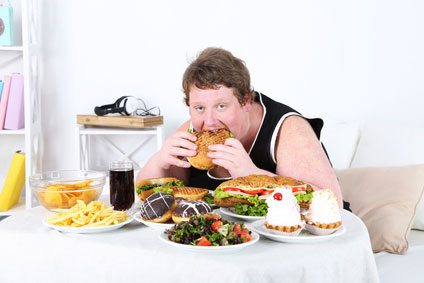Negative effects of binge eating
Posted on: 15/Oct/2016 9:35:25 AM

A large number of people nowadays go on regular binge eating sprees. Experts say that this can do more harm than you realize. According to a recent study, people who have a binge-eating disorder may be at a higher risk of illnesses, with the strongest associations with endocrine and circulatory systems.
A leading clinical psychologist says, Binge eating means more than just eating a lot. In this, a person feels out of control and powerless to stop eating. That`s why binge eating is also called compulsive or comfort overeating. People with this problem may overeat when they feel depressed, upset, hurt or emotionally drained. Many find it comforting and soothing to eat, but after a binge they`re likely to feel guilty about the out-of-control eating.
A healing diet specialist says, It results in a stark decrease in micronutrients, causing dulling of skin, hair fall, hormonal imbalance, acidity and constipation among the immediate symptoms. Vitamin deficiencies, loss of muscle tone and lower bone density are some of the long-term side-effects. Binge eating disorder can prove devastating as it has less to do with food and more to do with feelings. Suicides are very common with extreme cases of binge eaters.
So why do people binge eat? Say the experts, Whether depression is a cause or effect of binge eating disorder differs from case to case. Many people report symptoms of anger, sadness, boredom, anxiety or other negative emotions that trigger a binge episode. Psychological problems stemming from a bad childhood, relationship issues or dysfunctional families are common in people with binge eating disorder.
People who have distorted concept of their body image are also prone to binge eating. Cognitive-behavioural therapy teaches patients techniques to monitor and change their eating habits as well as to change the way they react to difficult situations. EMDR Therapy helps people access their disturbing memories and process them to avoid binge episodes. Treatment with medications such as antidepressants may be helpful for some individuals. The initial goal of treatment is to teach the patient to gain control over the eating behaviour by focusing on eating regular meals and avoiding snacking. Family, close friends, counsellors and life coaches are equally important in treating this eating disorder. One needs to feel happy first to feel healthy. So, like any other addiction the one thing you should never stop a binge eater from doing is eating.







